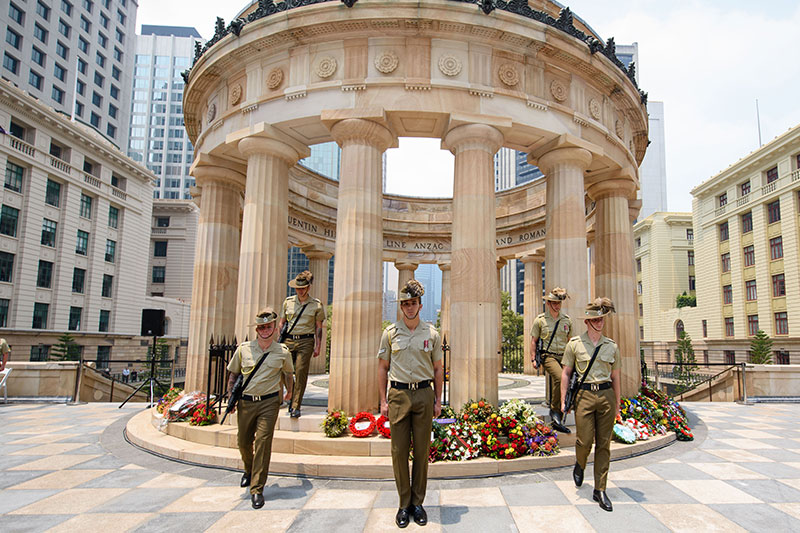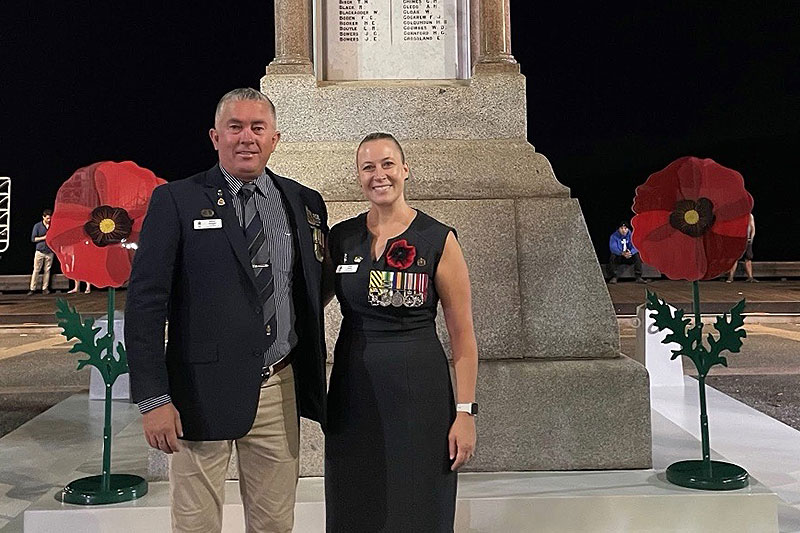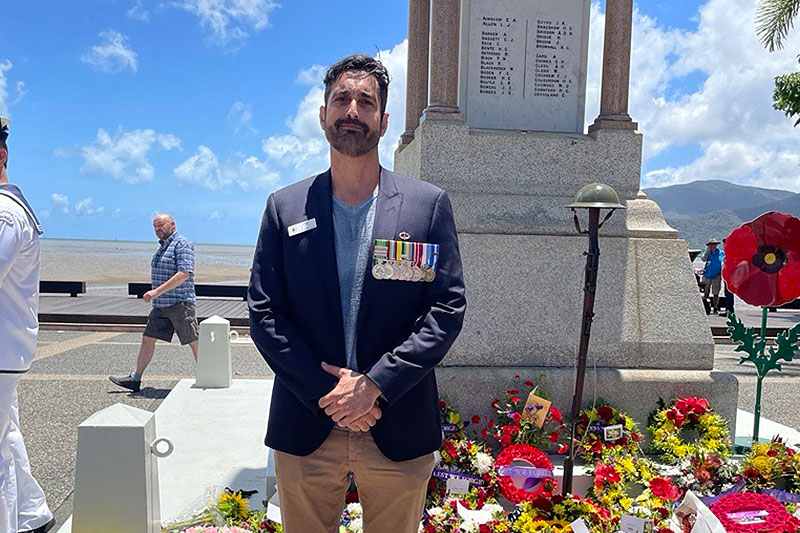
Why we get up early on ANZAC Day
11 April 2025- ANZACspirit
- History & commemoration
Find out why veterans Gillian Bryant and Rob Lee will be setting their alarms to attend their local Dawn Service on Friday 25 April.
What is ANZAC Day about?
ANZAC Day, which is on 25 April, began as a way to honour the service and sacrifices of Australian and New Zealand service men during World War I (WWI). It was officially recognised on 25 April 1916, a year after Australian and New Zealand Army Corps (ANZAC) soldiers landed at Gallipoli, Turkey – their nations’ first major military action of WWI.

WWI had a devastating effect on Australia, with an estimated one in two families losing a loved one.
This year, it will be 110 years since the Gallipoli landing, and while ANZAC Day still honours the ANZACs, it has now grown to also recognise all Australians who have served and continue to serve in the military.
What does ANZAC Day mean to veterans today?
So how do veterans feel about it today? Cairns RSL Sub Branch Vice President Gillian Bryant served in the Royal Australian Navy from 2001 to 2013 and believes honouring our military past is still relevant in today’s world.
“For me, ANZAC Day means remembering past conflicts and showing respect and gratitude to those who didn’t make it home, but also connecting with those still with us, as we all share a common interest and camaraderie,” she says.
“I take my children to a Dawn Service, and we march together in the morning parade. We catch up with Vietnam veterans and listen to their stories and I see people that I know from my service.”

RAN veteran and Cairns RSL Sub Branch Vice President Gillian Bryant with Sub Branch President Nathan Shingles
Gillian served 11 years and eight months full time as a Communication and Information Systems Sailor and was involved in various operations before discharging.
After having her family, she commenced Reserve service with the Navy Indigenous Development Program (NIDP) in 2018. Since July 2021, after leaving the NIDP, she has conducted 200 days a year with the Sea Training Group Defence Cooperation Program.
Army veteran and Cairns RSL Sub Branch member Rob Lee shares Gillian’s sentiment, but on ANZAC Day he also likes to focus his attention on our more recent military history.
His 16 years of service began just six months prior to the terrorist attacks on 11 September 2001.
“Australia’s operational tempo increased dramatically following September 11, and I was sent on deployments to East Timor, Iraq and Afghanistan. These trips were interspersed with training deployments across Australia, Southeast Asia and Europe,” Rob explains.
“I get asked what ANZAC Day means to me each year and while I usually say that I’m proud to be Australian and proud of our forefathers – which is a truthful answer – I don’t think it fully represents my thoughts.
“I am proud to say that the ANZACs are a part of our history, but I like to focus on today’s ex-service personnel.”
Why should I attend a Dawn Service?
After the devastating events at Gallipoli in 1915, ceremonies and marches were held across the country, giving Australians a chance to mourn the service personnel who lost their lives.
It is often suggested that Dawn Services on ANZAC Day are held because the half-light of dawn was one of the times favoured by the Australian Army for launching an attack. After the First World War, returned soldiers embraced the mateship they felt in those quiet, peaceful moments before dawn.
ANZAC Day Dawn Service protocols and rituals continue to this day, with each part holding special meaning and respect for military personnel.

Army veteran and Cairns RSL Sub Branch member Rob Lee
Rob believes the national day of commemoration is essential in any modern society and an ANZAC Day Dawn Service is a good time of day to pause and think of all the Australians that have served around the world.
“To anyone considering attending a Dawn Service I’d say set your alarms and come along. It might become a tradition for you like it has for me,” Rob says.
“I like to reflect on my deployments and the people I knew that passed because of their service. I also think about the people I don’t know who will serve in the future.”
Gillian says an ANZAC Day Dawn Service is significant for her because it is a reminder that while we aren’t in an active war, some still make the ultimate sacrifice for their service.
“A Dawn Service is a quiet and sombre time of day to reflect. We can appreciate, while remembering, what it must have been like for those on the frontline not knowing what they were charging into.”
“I highly recommend individuals and families attending a Dawn Service in their community – even if it’s your first year doing so, it just brings a whole different meaning to the day.”
ANZAC soldiers were recognised for their courage, endurance, ingenuity, good humour, and mateship – qualities now known as the ANZAC spirit.
“To me, ANZAC spirit has become a part of our national identity,” Gillian says.
“I think Aussies have this ability to wake up every morning and get on with life despite what may be going on, which is what the ANZACs did all those years ago.”
It is fair to say that ANZAC Day can mean different things to different people. Nevertheless, Gillian and Rob encourage people of all ages to attend their local ANZAC Day service this year.
Whether you go every year, or this is your first time, commemorating ANZAC Day is a chance to honour the invaluable contribution of all who have served our nation.
This ANZAC Day
ANZAC Day (25 April) is a time to recognise all who have served our nation, and their invaluable legacy.
Wherever you’ll be on ANZAC Day, please join the community in attending a commemorative service.
There’s no greater way to honour those who have served.
